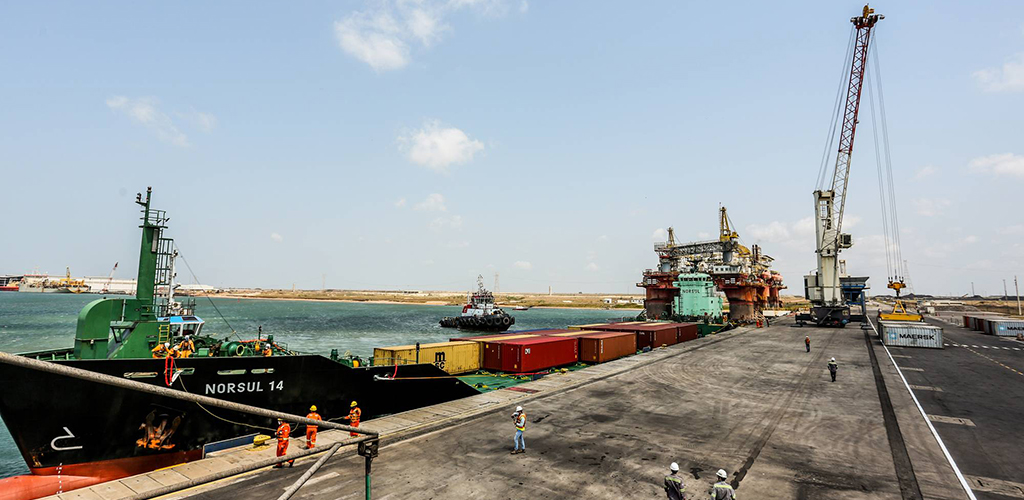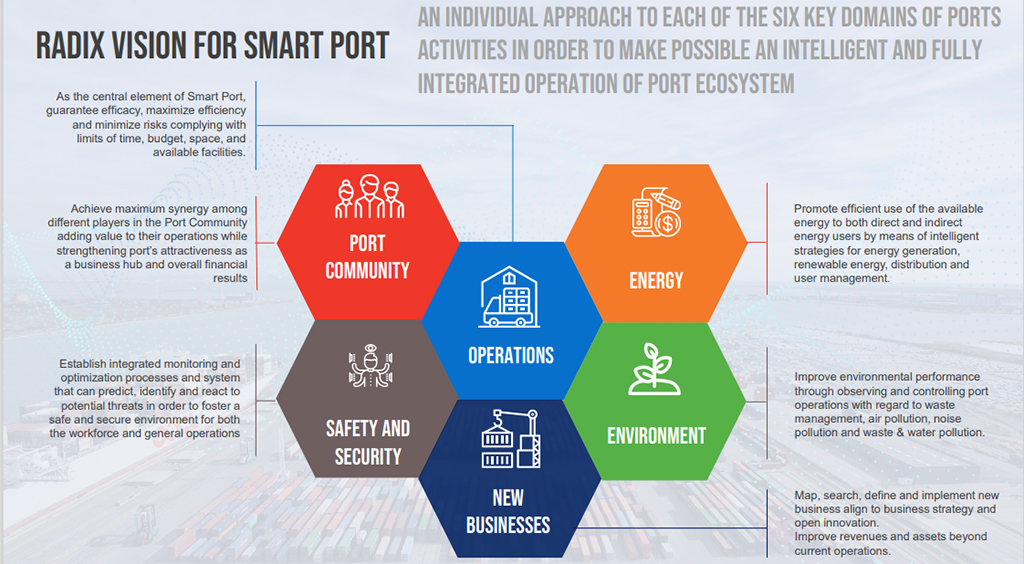Jun 09 | 2021
(Americas) HPC, UTC Overseas, Radix, UH Support Largest Latin Private Port

HPC Hamburg Port Consulting, UTC Overseas, Radix Engineering and Software, and the University of Houston’s Supply Chain & Logistics Technology Program are collaborating to develop a “Smart Port Digital Growth Masterplan for the Brazilian Port of Açu, or PdA, Latin America’s largest private port.
The partnership’s goal is to develop a five to 10-year vision for the technological platform for PdA and its ecosystem. The plan will focus on optimization of operations, attracting new technologically aligned businesses, and establishing a technological governance plan and systems architecture, according to a statement from UTC Overseas.
“Brazil is one of the strongest U.S. trading partners,” said Marco Poisler, UTC Overseas’ chief operating officer of global energy and capital projects. “The Port of Açu has a strong relationship with the Port of Houston, the Global Energy Capital. Fostering and improving this connection through increased trade and advanced technology is very exciting.” states
Innovation and Digitalization
The masterplan development is based upon benchmarking of key worldwide ports, including Port of Antwerp, PdA’s strategic partner through the Port of Antwerp International, which is one of the pioneers in the smart port concept, focusing on innovation and digitalization.
“Large ports in the world, such as Antwerp, Rotterdam and Hamburg, use different and excellent port and maritime traffic management tools,” said Port of Açu Chairman José Firmo, “but few operate in the way that Port of Açu operates, integrating these tools in the same environment. There is a worldwide demand for greater integration of port and navigation systems.”
Luis Alfredo de Almeida Cruz, business development manager of Radix, said the company ha developed digitalization projects for other ports, notably the CSN Port at city of Itaguaí, Rio de Janeiro State, and some VALE ports. “We’ve found that the digitization of the various stages of the production process will allow the analysis of medium and long-term trends, with the aim of increasing the availability and efficiency of the port. This will lead to better decision-making – based on data – reacting more quickly to the market and with a leaner, more reliable and economical cargo movement.”
PdA expects the digital masterplan to generate greater efficiency, reduce time of shipments/landing, and link all clusters and production steps, such as movement statistics, availability, maritime safety data, customer specifics, and engagement with all stakeholders in the ecosystem.
Pablo Bowen, Associate Partner of HPC Hamburg Port Consulting, said digital plans are the first step to becoming a world-class port. “End-to-end visibility of the extended supply chain, including the last mile, is one of the challenges. Availability of common software platforms for port communities’ stakeholders sharing information and with efficient processes is another challenge and makes the difference between port communities.”
The plan will propose digitalization of logistics processes and draw new businesses as a productive port.
“Beyond digitization, the ‘port of the future’ plans for new industry cluster needs, looks to collaborative partnerships to drive innovation and growth, applies the value proposition of the ‘triple bottom line,’ understands the importance of filling the skills gap to not only prepare the ‘workforce of the future’, but more saliently to attract knowledge intensive industries, such as high-tech,” said Margaret Kidd, Program Director, Supply Chain & Logistics Technology, University of Houston.




